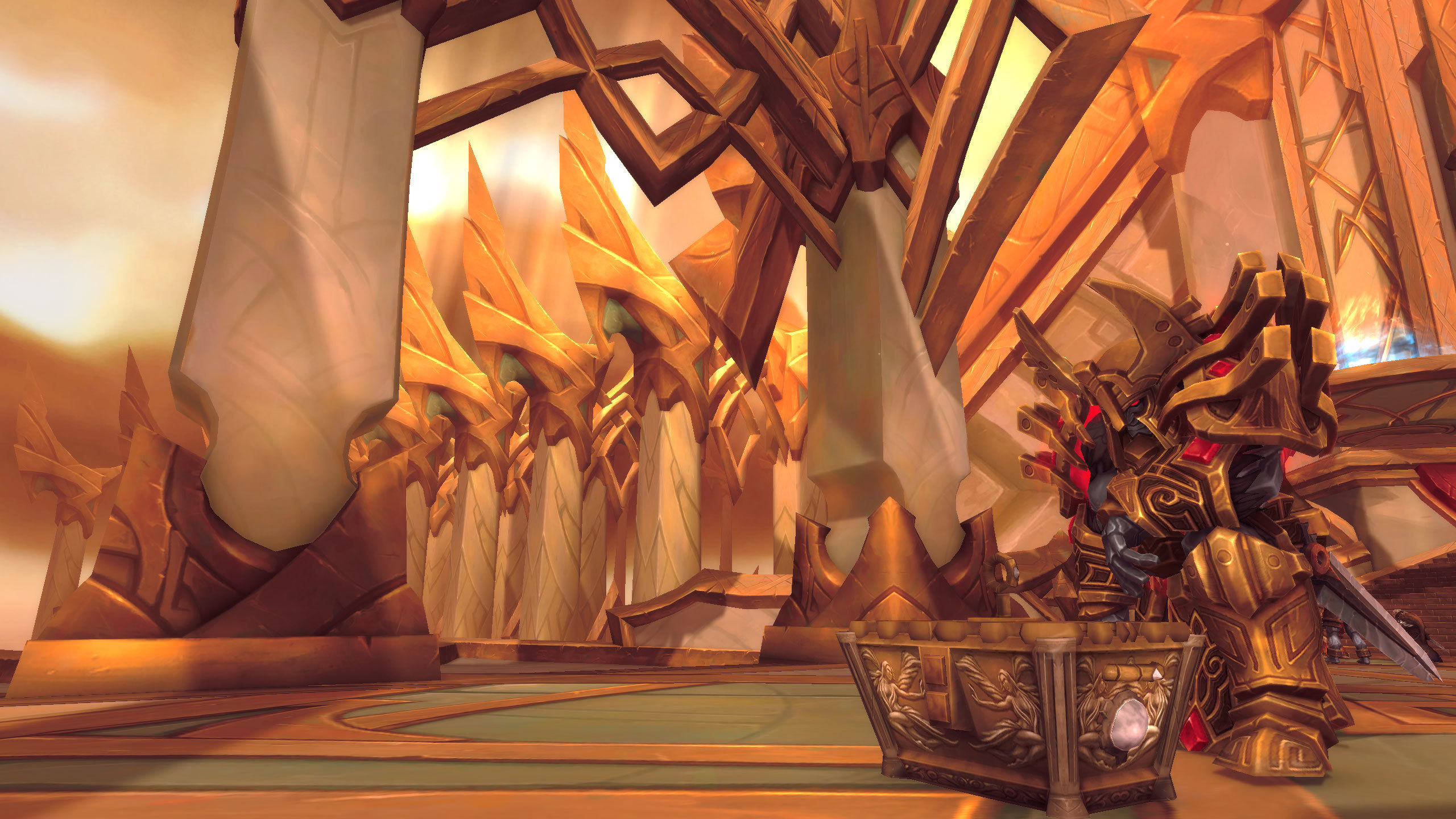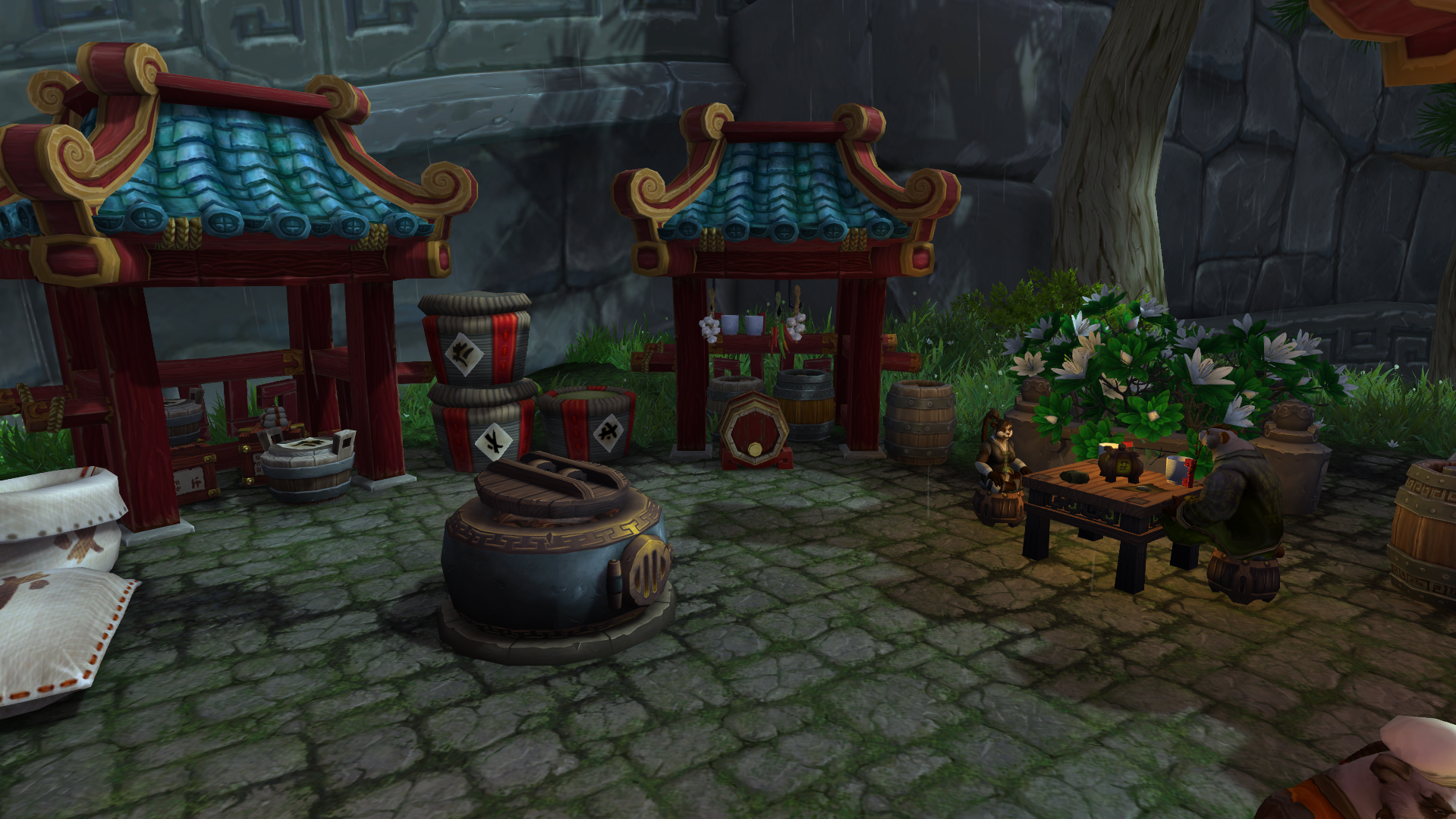Introduction: Why Speed Matters in MoP Classic Progress Pandaria is designed with dense quest routes, long travel paths, and tough mobs that expect players to stay prepared from the start. Many players notice right away that progress slows down when their gear or supplies do not match the pace of the zone. Every pull lasts
-

-

Blades of the Valarjar: Chronicle of the Stormforged Champions
The Valarjar are more than servants of Odyn—they are the storm’s chosen, warriors reforged in lightning and shaped by trials that break ordinary mortals. From the golden halls of the Halls of Valor to the battlefields of Stormheim and beyond, these champions stand as living embodiments of courage, discipline, and the relentless pursuit of glory.
-

Gold Farming Expeditions: Journey To Wealth In World Of Warcraft
Venturing into the virtual world of World of Warcraft (WoW) is like stepping into a bustling marketplace, where gold is the currency that rules them all. You, an adventurer in this vast digital landscape, might be wondering how to amass wealth and elevate your gameplay to new heights. Well, you’re in luck! This guide will
When Buying WoW Classic Gold Pays Off
Introduction
Buying WoW Classic Gold can be a game‑changer if you use it at the right moments. Many players grind for hours to cover small gold needs for gear, mounts, or consumables. A well‑timed purchase cuts out that grind and frees you to focus on playing. Gold buys work best when you face bottlenecks—points where lack of gold slows your progress significantly. Examples include hitting level caps without good gear, missing out on mounts, or entering dungeons underprepared. By watching for these moments, you can top up your gold reserves just enough to clear the hurdle and move on. This strategy keeps your play sessions smooth, prevents frustration from repeated farming, and lets you enjoy more varied content right away.
Knowing when buying gold pays off comes down to spotting key thresholds. At early levels, a few gold can cover upgrades that boost your damage or survivability. Mid‑game, gold helps you pick up mounts and unlock travel options. Late game, gold covers high‑end enchants, consumables, and service runs for raids. Each of these thresholds has a clear benefit: better gear for faster kills, faster travel for more play time, and top‑tier boosts for serious content. Without skipping the fun parts, you only spend money or real‑world currency when gold purchase has a direct impact on what you can do next. This keeps your investment efficient and your gameplay varied.
In this article, we look at the moments when spending real money on WoW Classic Gold makes sense. We cover early leveling, travel perks, dungeon readiness, PvP jumps, and endgame pushes. At each stage, you’ll see how a targeted gold buy removes a roadblock, opens new options, and speeds your overall progress. Armed with this guide, you can decide exactly when to farm and when to buy, so you spend your time in Azeroth doing what you enjoy most.
Speeding Early Leveling
Early in the game, small gold buys can deliver big returns on time. Levels 1–20 often feel slow because gear and consumables are scarce. Picking up a green‑quality weapon or armor piece for a few silver from the Auction House can raise your damage or health by 5–10 percent, letting you clear quests faster. Health and mana potions cost only a few copper each but can save minutes on each dungeon run by avoiding trips back to town. If you buy a stack of ten potions, you cover multiple runs for less than one gold, compared to the tens of minutes you’d spend farming herbs or mining ore for crafting.
Beyond potions and gear, you can use gold to cover training fees so you never miss a spell rank. Buying each new rank as soon as you hit the level cap costs a handful of silver, but missing it can cost dozens of silver later when you have to grind a batch of quests without the new ability. At early levels, that added power helps you tackle quests and mobs that give better rewards. Instead of farming additional quests just to get enough silver, you focus on content that gives experience and useful loot. This gold strategy makes early leveling smoother, keeps your experience curve steady, and gives you a head start on core skills and gear sets.
By spending gold in small amounts at key points—like when you hit level 10 for your first weapon upgrade or level 15 for a major chest piece—you cut out the slow parts of early leveling. These purchases set you up for better runs through zones where you earn more gold naturally, so you build momentum as you move up. Early investment in gold ends the uphill grind and makes each level jump feel like a reward.
Fast Travel and Mount Perks
Travel time can eat up a large chunk of your play sessions, especially if you’re constantly running between quest hubs or back to vendors and trainers. Buying WoW Classic Gold to secure mounts and travel options lets you reclaim those hours. At level 40, Apprentice Riding costs 5 gold and 80 silver, which covers both training and the mount purchase. If you farm that amount by hand, you might spend several hours on low‑yield quests and grinding. Instead, a small gold buy tops you off so you hit the exact amount the moment you reach level 40. The result is a new mount in your first play session at that level, cutting travel time by roughly 40 percent.
Beyond mounts, gold pays for flight path fees and hearthstone binds. Each flight path typically costs a few silver to learn. Over a leveling session that hits multiple new zones, those fees stack up. Spending 20–30 silver on key flight paths in advance lets you move freely between major hubs without running. A well‑placed hearthstone bind costs only a few silver to reset at a new inn, but changing it each time you shift zones can add convenience that saves trips back to capital cities. With gold buys, you cover these fees without worrying about silver, so you stay in the field and complete quests faster.
In addition to mounts and flight paths, gold can cover consumable travel aids like Swiftness Potions or water‑walking elixirs. A stack of five Swiftness Potions costs less than one gold but lets you sprint past danger or reach rare spawn points quickly. Water‑walking Elixirs cost only a few silver each yet save long swims in zones with water barriers. Buying these consumables in advance with gold ensures you have every tool available to move across the map fast. When you combine mount speed, flight paths, and travel consumables, the difference is clear: you spend more time playing and less time running, making each dollar’s worth of gold purchase pay off in increased play value.
Dungeon and Raid Readiness
Preparing for dungeons and raids often means a last‑minute scramble for gear and supplies. A targeted gold purchase can fill that gap and let you join group runs without delay. First, buy key gear upgrades: an off‑hand item with the right stats or a trinket that boosts your main role. These pieces can cost between 2 and 5 gold on the Auction House but save hours of farming for a chance drop. Next, stock up on flasks and potions. Flasks such as Flask of the Titans cost around 1.5 gold each and last an hour, while major health and mana potions run about 0.5 gold per stack of ten. Finally, set aside repair funds: a full raid clear can cost 2–3 gold in repair bills alone. Rather than risk a wipe because you’re out of repair money, buy a 5‑gold reserve so you head in with peace of mind.
Use the table below to plan your dungeon and raid spend:
| Item Category | Recommended Purchase | Approximate Cost | Benefit |
|---|---|---|---|
| Off‑Hand/Trinket | 2nd‑tier Auction House piece | 3–5 gold | Boosts main stat by 20–30 points |
| Flask | Flask of the Titans | 1.5 gold each | +375 health for 1 hour |
| Potion Stack | Major Healing/Mana Potion (x10) | 0.5 gold | Quick HP/MP restore |
| Food Buffs | Dragonbreath Chili (x20) | 0.2 gold | +25 fire resistance or primary stat |
| Repair Reserve | Gold kept for repair | 5 gold | Covers full raid repair costs |
Refer to this table before you log on for a group run. Adjust quantities if you plan multiple clears or shuttles between instances. Buying these items outright guarantees you enter each dungeon or raid with the right setup, cutting out frustrating waits for drops or crafting queues.
Gaining an Edge in PvP
Battlegrounds and world PvP demand quick stat gains and an edge over opponents who keep farming gear. A small gold investment can turn the tide in close matches. Start by buying weapon enchants like Lifestealing or Crusader, which cost about 2–3 gold each but deliver strong procs. Next, pick up resilience gems and enchants for your armor—around 1 gold per socketed gear piece—to reduce incoming critical damage by up to 10 percent. Finally, stock up on PvP potions such as Free Action Potions and Swiftness Potions; budget 1 gold for a stack of five each. These consumables help you escape crowd control and chase fleeing targets, giving your team a clear advantage.
Key PvP purchases:
- Weapon Enchants: Lifestealing, Crusader (2–3 gold each)
- Resilience Gems: +8 Resilience per gem (1 gold per socket)
- Armor Enchants: Defense or Resilience enchants on bracers and chest (0.5–1 gold)
- Free Action Potions: Stack of five (0.5 gold)
- Swiftness Potions: Stack of five (0.5 gold)
By mixing weapon procs, damage reduction, and escape tools, you cover offense and defense. Buying these items with gold before a PvP session means you’re ready for any match-up, rather than scrambling to farm mats or wait for the Auction House.
Endgame Push and Rare Items
At max level, gold opens doors to rare items and service runs that farming alone can’t reach fast enough. Limited‑time world bosses drop loot once per week—if you miss the spawn, you wait days. Instead of hoping for a drop, consider buying a “carry” service for 10–20 gold to get that item on a farmed character, then mail it to your main. Similarly, attunements for endgame raids often involve time‑gated dungeon runs. Paying a small fee for a service run (around 5 gold) clears the attunement quest instantly, so you join raid groups immediately. For server‑rare items on the Auction House, such as a 1‑in‑1000 drop cloak, be ready to spend 15–30 gold at peak demand if you need it for a set bonus or stat break.
List of endgame gold‑payoff moments:
- Carry Runs for Weekly Bosses (10–20 gold) – Guarantees rare loot drop.
- Attunement Service Runs (5 gold) – Skips time‑gated dungeons.
- Server‑Rare Gear Purchases (15–30 gold) – Secures must‑have set piece.
- High‑End Enchants and Runes (2–3 gold each) – Final stat push for raids.
- Guild Repair Buffs or Vendor Buffs (variable) – Lowers ongoing repair costs.
These endgame purchases cost more but save days or weeks of play time. By targeting only the services and gear that block your progression, you spend gold when it delivers the biggest gains. This ensures your time in raids and high‑end content focuses on skill and strategy, not on the slow chase for a single drop or the grind for attunement quests.
Conclusion
Smart gold purchases remove roadblocks and speed your progress in WoW Classic—but only when used at clear points. Early on, small buys cover gear upgrades and consumables that boost your power curve. Mid‑game, topping off gold for mounts and travel fees cuts downtime and keeps you in the field. Before dungeons and raids, targeted buys for key gear, flasks, and repair funds let you join group runs without delay. In PvP, spending on weapon enchants, resilience gems, and potions gives a fighting edge. At max level, gold pays for carry services, attunement runs, and rare gear that would take weeks to farm.
To get the most value, track server prices and time purchases around event windows and resets. Break large gold needs into smaller buys of 20–30 percent of your target to avoid market spikes. Hold off on low‑impact buys and farm small amounts of gold in‑game when it costs less than an hour of play. Keeping a simple budget and logging Auction House trends lets you use gold as a tool, not a crutch. With this approach, each dollar you spend on WoW Classic Gold delivers clear returns: faster leveling, better gear, smoother travel, and a stronger character ready for any challenge.
